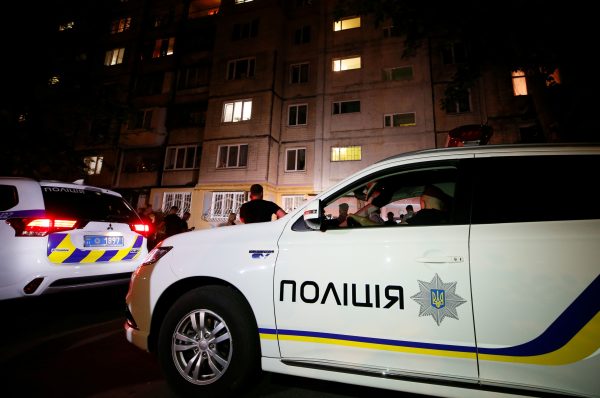
Current professional crime has a multifaceted nature. At the end of the 20th century, according to official data, there were more than 100 criminal specialties. This is twice as much as at the beginning of the century.
Professional criminals include: criminals from the political elite; professional thieves, swindlers, counterfeiters, robbers, extortionists, hired killers.
The greatest concern today is hired killers. Ix can be classified into six groups:
1). Unemployed – people from the social “bottom” – are ready to fulfill orders for a small fee.
2). Fighters are members of criminal groups who destroy potential victims on the orders of “authorities”, their fee does not exceed 1-2 thousand dollars.
3). Former athletes (bodyguards) — undergo a special training course to commit murders to order. Ix fee from 2 to 5 thousand dollars.
4). “Professionals” — former special forces, paratroopers, marines — mercenaries who work on call, their fee starts at $10,000.
5). “Superpros” are elite mercenaries from former officers of law enforcement agencies and intelligence agencies, their fees start at $50,000. They usually work alone.
6). A criminal commission is a group consisting of an organizer, killers, and arms dealers.
Separately, we should dwell on pickpocketing, which belongs to highly qualified specialists of the criminal world. This criminal group is of increased interest, as it is characterized by a large number of narrow specializations, the stability of criminal behavior and a pronounced subculture (slang, traditions).
Pickpockets are divided according to the place of crime into 7 main specialties: “marketers” — those who “work” in the markets; “moles” — in the subway; “Maidanschyki” – on railway transport; “routers” — on all types of city transport; “shopkeepers” — in shops; “theatre workers” — in theaters; “street peddlers” — on the streets and squares.
According to the method of committing theft, 7 specializations are also distinguished:
1) “technicians” — commit theft with the help of special technical means;
2) “shirmachi” – steal, covering their hands with various objects (cloaks, bags, bouquets of flowers);
3) “fishers” — carry out theft with the help of special hooks;
4) “surgeons” — manipulate patients;
5) “tweezers” — steal from bags by cutting them;
6) “shakers” — push out the object of theft with a sharp movement;
7) “handbaggers” – get everything out of bags, using any tool.
In addition to the specified pickpockets, there are also specialists who facilitate the work of the main performer. These are, in particular, “propolists” – persons who accept stolen goods immediately after committing a crime, and “tnrschiks” – those who distract the attention of the victim. The higher the qualification of the thief, the greater his criminal activity. On average, a pickpocket commits 25-30 thefts per month. Nowadays, pickpocketing tends to increase.
This is caused by the following factors: 1) significant unemployment, which pushes people to the path of illegal acquisition of means of livelihood; 2) high latency of this type of crime; 3) problems with documenting the crime in such a way that the case has the prospect of ending with a guilty verdict.
Today, professional prostitution has also acquired a large scale, which has become quite a profitable business. Here, in addition to the direct participants (the client and the prostitute), there are other interested parties: den owners, suppliers of “live goods”, drivers, security guards, etc. In addition, the “sex industry” is closely related to illegal drug trafficking, the spread of venereal diseases and AIDS, fraud, corruption and other crimes.
A new type of criminal professionalism in Ukraine is personified by computer criminals. For unauthorized access to information and telecommunication systems, they attract highly qualified specialists, who later become professional criminals. Most often, law enforcement agencies deal with computer fraud. Introduction, replacement, correction or destruction of data or programs, other interference in the process of processing information bring hackers considerable income and cause irreparable damage to commercial and government structures. Electronic hacking also includes damage to computer security systems, erasure and falsification of information. In addition, computer technologies are widely used in “shadow” conversion centers, which allows clients to evade paying taxes on millions.
The fight against criminal professionalism involves taking a complex of measures of an economic, social and legal nature, active participation of the public. All preventive activities should be based on modern legal provisions. First of all, it concerns the improvement of criminal, criminal procedural and criminal executive legislation. For this, it is necessary to reach a unanimous conclusion regarding the expediency of the following novels:
a) define the concept of a professional criminal in the General Part of the Criminal Code;
b) for persons recognized as such, the final measure of punishment shall be established by adding up the sanctions provided for each episode of their criminal activity.
A. I. Gurov suggests creating conditions under which the commission of a crime would be economically unprofitable. Unfortunately, this task is practically unattainable, but it is possible to make the payment for the crime profitable for the state and the victims. It is clear that this requires a significant reform of the entire penitentiary system.
It is equally important to improve the work of law enforcement agencies in the field of combating professional crime. Specialization and integration of criminals-professionals requires adequate actions on the part of law enforcement officers. Among such measures, we can definitely consider the further specialization of the relevant units of Ukraine. Thus, recently, two new main departments have been created – for the fight against organized crime and for crimes in the economic sphere. The National Bureau of Interpol was also created, which makes it possible to combat international professional crime more effectively. The coordination of actions and the exchange of operational information between various law enforcement agencies involved in the fight against professional crime are improving.
Separately on the agenda is the problem of combating the criminal use of computer equipment. In Ukraine, there is not a sufficient number of specialists, on the one hand, in the field of investigative and investigative activities, and on the other hand, there are not enough specialists in computer technologies at the level of a system programmer. There is a need to train such specialists at MBC universities of Ukraine, as well as to study world experience in this matter. Yes, in the United States of America, a model of resocialization of former hackers has been developed.
Of particular concern is the high level of public distrust of law enforcement agencies. Practice shows the low effectiveness of fighting crime exclusively by the forces of these bodies. Therefore, it is necessary to purposefully establish close ties with the public. Experts who study professional crime point out that criminal traditions are a prerequisite for the reproduction of criminal professionalism.
Therefore, effective counter-propaganda aimed at destroying the halo of romance that has formed around the “authorities” should be established. It is necessary to debunk the criminal subculture and its carriers. This will contribute to reducing the number of minors who go to crime for the sake of romance, and while serving their sentences in places of deprivation of liberty, go through the school of a professional criminal.
Writer Rovendo
Original content license agreement Creative Commons Attribution 4.0 license







